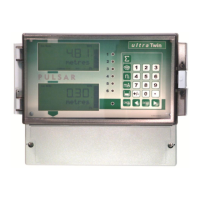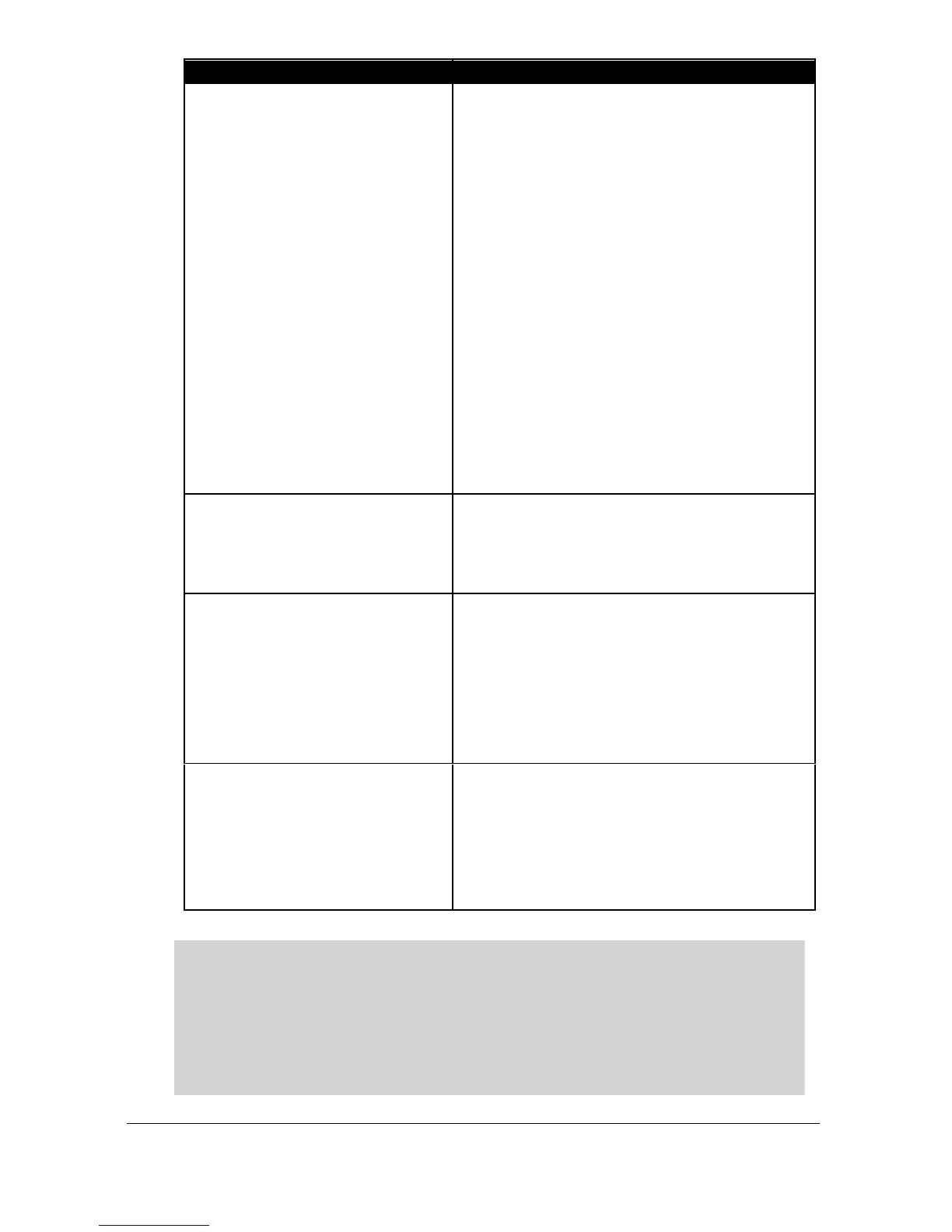7= Service ratio duty backup
If a pump fails to meet the demand (due
to malfunction, intake blockage and so
on), then it is stopped and another pump
shall take over. Each time a pump is
required to start then the pump with the
least running hours (with respect to the
service ratio) is started (i.e. the setpoints
are re-assigned accordingly). Each pump
has its own setpoints (P*213, 223, 233,
243, 253, 263 & P*214, 224, 234, 244,
254, 264). The third setpoint (P*215,
225, 235, 245, 255, 265) is used to set
the service ratio. For example, if two
pumps A and B have the service ratio set
to 2 and 1 respectively, then pump A
will operate for twice as many hours as
pump B.
8= First On First Off,
alternate duty assist
The first pump switched on is the first
pump to be switched off, etc. regardless
of the set points, so the setpoints are
dynamically changed to enable this.
9 = Service Ratio Standby
When a service ratio duty is being used,
on all other pumps in use, the standby
pump can be started on a ratio basis
only, when it will assume the setpoints
of the next pump to start. The third
setpoint (P*215, 225, 235, 245, 255,
265) is used to set the service ratio.
There are four pumps. Two rotate their
start-up sequence with each other. If the
two pumps cannot keep up, the level rise
to the setpoints of the other two pumps
which take over and rotate their
sequence with each other.
Important Information
The pumps are started and stopped at the “ON” and “OFF” setpoints. To
pump down (reduce level) then set “ON” higher than “OFF”. To pump up
(increase level) then set “ON” lower than “OFF”.

